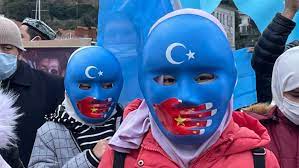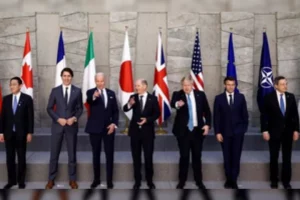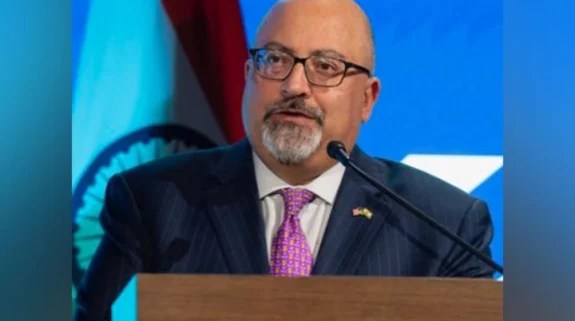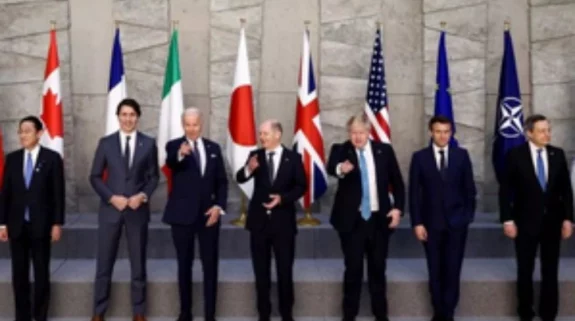More than 50,000 Uyghurs in Turkey usher in the new year with a feeling of skepticism and fear as the Standing Committee of the National People's Congress of China has ratified a bilateral extradition treaty signed in 2017 which aims to target Uyghurs who are living in exile in Turkey.
Uyghur activists all over the world fear that, if adopted by Turkey, the bilateral agreement is likely to become another instrument of persecution for China, aiding the Chinese government in its coordinated efforts to forcibly return Uyghurs living abroad. Even though Turkey's Foreign Minister Mevlut Cavusoglu dismissed yesterday the fears of Ankara deporting Muslim Uighurs en masse saying it is yet to ratify the treaty, Uyghur leaders believe that China is putting immense economic and diplomatic pressure — including delay in the delivery of the first shipment of the Sinovac Covid-19 vaccine — on the Recep Tayyip Erdogan regime to push the ratification of the agreement.
They highlighted the recent leaked documents which revealed that China has criminalized and detained Uyghur Muslims in the Xinjiang Uyghur Autonomous Region (XUAR) for everyday lawful, non-violent behaviour, as well as for travelling or having family abroad. Various reports have revealed that those pushed into the camps are detained indefinitely without charge, forced to undergo indoctrination classes, subjected to physical and mental torture, rape, forced sterilization and other inhumane treatment. It is to escape this repression that a large number of these Uyghurs have fled and became stateless, living under precarious conditions in countries like Turkey.
Activists believe that the new treaty would aggravate their situation even further, as it would place these Uyghurs at a greater risk of being forcibly returned to China, where they could face severe maltreatment.
In 2018, both the Swedish and German governments enacted policies to halt all deportations of Uyghurs (and other Turkic Muslims) from their respective countries until further notice because of the horrendous conditions on the ground for Uyghurs in China.
Over the past two years, four resolutions from the European Parliament have also noted the immense risk Uyghurs refugees and asylum seekers are facing, called on EU member states to refrain from returning Uyghurs to China and commended Sweden and Germany for implementing their moratoriums. The Malaysian government has also announced that it will not return any Uyghur refugees to China. "Turkey is considered to be a second home for Uyghurs, who have taken refuge in this country that has cultural and linguistic ties with the Uyghur people," Dolkun Isa, president of the World Uyghur Congress (WUC), an international umbrella organization promoting Uyghur human rights, said.
"Given the genocide that is unfolding in East Turkistan, the Turkish government has a responsibility to protect all Uyghurs living in Turkey," he hoped while calling on the Turkish government to abide by international law and the principle of non-refoulement and refrain from signing the extradition treaty.
The Uyghur human rights organisations believe that since 2017, China has been interning an estimated 1.8 – 3 millions of Uyghurs and other Turkic peoples in concentration camps, under the guise of counter-terrorism. After Uyghurs flee China, the Chinese government relentlessly pursues Uyghur refugees and uses its power and influence to pressure host countries into returning Uyghur refugees and asylum seekers.
Upon their return, Uyghurs are subjected to enforced disappearances, arbitrary detention, torture, and other serious human rights violations. "Small-scale dissent — for example, criticisms of China's state system — are classified by China as crimes, and this agreement unfortunately could lead to the repatriation of Uyghurs who oppose (China's policies) and have commented on the oppression faced by Uyghurs in East Turkestan," Yurter Ozcan, the American Representative of the Republican People's Party (CHP) and the founding chairman of the Turkish Policy Center in Washington, told Radio Free Asia's Uyghur Service.
India Narrative has earlier reported that how President Erdogan is helping China repatriate Muslim dissidents by sending them to third countries like Tajikistan from which they can be extradited by Beijing. In June, the United Nations' experts had called for "decisive measures" to protect fundamental freedoms in China, raising their grave concerns from the collective repression of the population, especially religious and ethnic minorities, in Xinjiang and Tibet to worrying anti-terrorism and sedition laws applicable in Hong Kong.
In the same month, US President Donald Trump had signed a legislation calling for sanctions over the repression of China's Uighurs. "The United States will not stand idly by as the CCP carries out human rights abuses targeting Uyghurs, ethnic Kazakhs, and members of other minority groups in Xinjiang, to include forced labor, arbitrary mass detention, and forced population control, and attempts to erase their culture and Muslim faith," US Secretary of State Mike Pompeo had said in a statement.
The Trump administration had in November revoked the designation of the East Turkestan Islamic Movement (ETIM), blamed by the Chinese government for attacks in Xinjiang, as a "terrorist organization". Earlier this month, the European Parliament adopted a resolution that strongly condemned China over allegations of forced labor by minority groups. "Parliament strongly condemns the Chinese government-led system of forced labour — in particular the exploitation of Uyghur, ethnic Kazakh and Kyrgyz, and other Muslim minority groups — in factories within and outside internment camps in the Xinjiang Uyghur Autonomous Region," the EU body said in a statement.




















